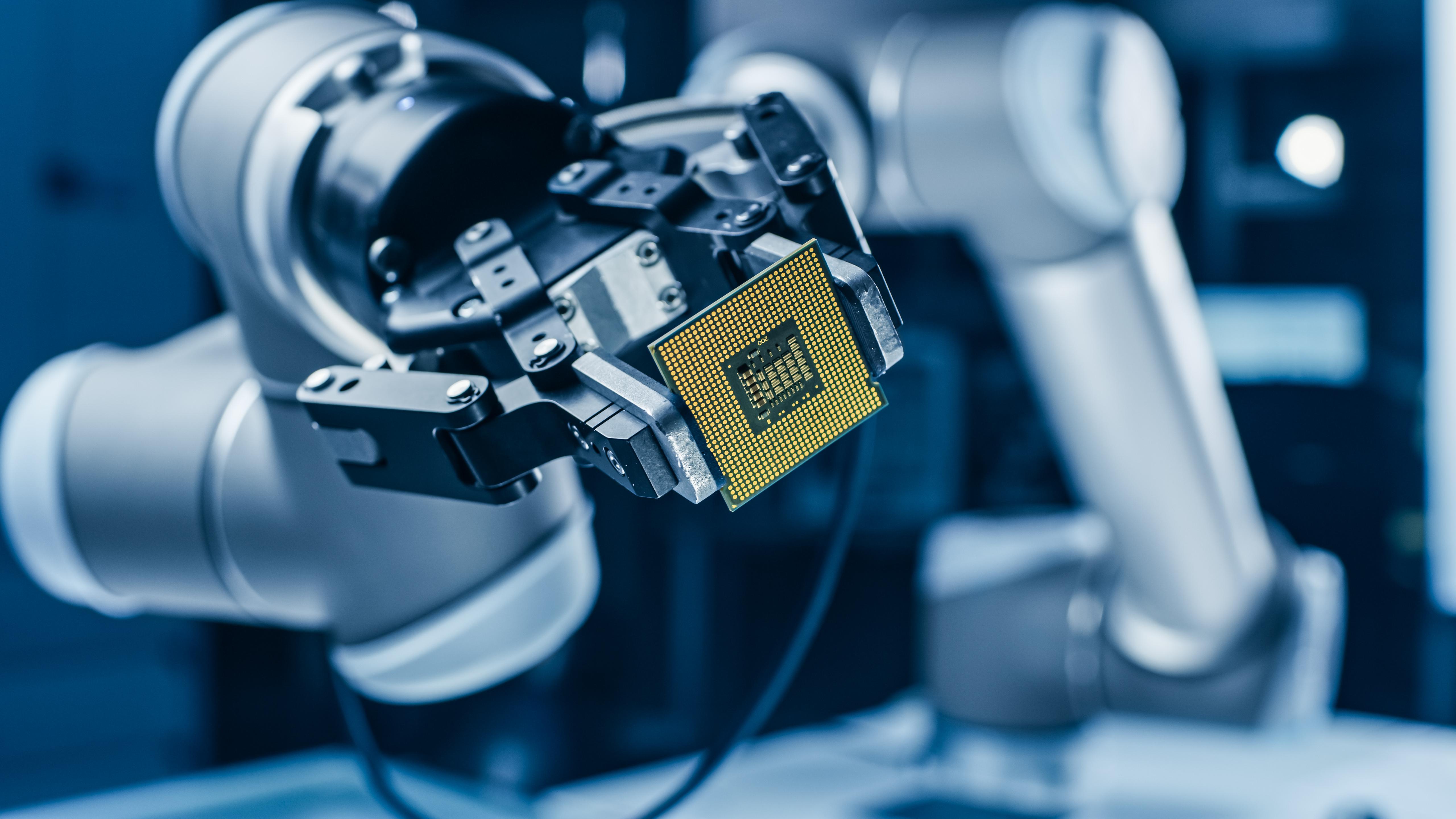Machine Learning (ML) is a data analysis method and subcategory of Artificial Intelligence (AI) that uses transformers to deduce and develop algorithmic knowledge based on recursive principles, applying this information to reach a desired output.
These intelligent insights can be used in seemingly endless ways, and are deployed throughout a wide range of predictive processes such as inventory management and protecting networks from cyberattacks.
Examining how to use machine learning in manufacturing reveals its broad scope of benefits across numerous industries. ML is particularly effective in detecting product anomalies and defects with extraordinary accuracy, making it ideal for quality inspection and process control.
It is easy to understand why the global machine learning market is projected to grow from $21.17 billion in 2022 to $209.91 billion by 2029.
Below we’ll address five of the more prevalent questions about the ways companies are adopting ML in manufacturing across different industries and at all stages of production.
1. What Is Machine Learning in Manufacturing?
Machine learning uses neural networks to rapidly increase its understanding of the data it is fed. This data could be images of defects located on the surface of specific source materials or product composition at various stages of the manufacturing process. Data can also be extracted from automated systems, providing a quantitative, comprehensive report of production protocols.
When using ML in manufacturing, companies can automate the process of identifying, classifying, and assigning causality to any feature of interest required for process control purposes, updating parameters as needed.
Beyond automation, ML is uniquely able to recognize patterns and improve detection accuracy, enabling greater overall efficiency of manufacturing plants. ML can be used in processes such as:
- Operational efficiency
- Approving source materials
- Inventory control
- Machine maintenance
- Energy use
- Performance assessment
- Job safety
ML is highly accurate in developing predictive models because it learns based on actively collected data—quickly increasing in precision. When ML recognizes a desired feature correctly, that feature is added to its library of knowledge, and if it predicts an occurrence incorrectly, it adjusts to avoid the same mistake through reinforcement, supervised, or unsupervised learning.
ML is able to make reliable assessments, but of equal importance, it can be applied to repetitive tasks—allowing operators to focus on other processes that match their ingenuity.
2. Where Can AI Be Used in Manufacturing?
AI is used throughout manufacturing procedures. Processes that are mundane for a human but necessary to production all benefit from the application of AI, including the following:
- Optimizing automated factory lighting
- Controlling factory temperatures
- Managing inventory supply
- Ordering materials
AI and ML in Process Control
As a subcategory of AI, advanced ML technology compiles data collected from systems deploying optical microscopy, computational super-resolution, and robotics, serving industries such as aerospace, automotive, genomics, and more.
These capabilities extend beyond traditional inspection stages; Nanotronics’ nControl™ tool monitors all manufacturing stations—a revolutionary breakthrough that assists operators in observing new metrics and generating greater efficiency of process. Stages of manufacturing previously overlooked can now be inspected and easily corrected, perfecting every phase of production. Examples include:
- -Uncovering contamination risks and alerting operators to potential malicious activity in chemical plants and graphene production facilities
- -Recognizing, classifying, and measuring nanoscopic flaws in semiconductor materials
- -Increasing yield and reducing costs across every stage of the consumer electronics supply chain by inspecting glass, camera sensors, processing chips, LEDs, and more.
3. Where Is Machine Learning Applied?
Applying machine learning at every production stage reduces exorbitant costs and significantly increases yield for manufacturers. Examples include:
- Inspecting and discarding defective materials before they undergo further refinement
- Automating repetitive processes such as identifying material anomalies
- Locating errors in production
- Identifying when and where equipment is deviating from specifications
- Modulating the high level of expertise required for PCB inspection
- Managing shipping and receiving
- Identifying patterns that signal factory failure
- Filling orders at the proper time and regulating supply for inventory parts management
4. Which Industries Benefit from Machine Learning?
The applications of machine learning are so broad nearly every industry that leans heavily on manufacturing, ordering, shipping, and logistics benefits from its capabilities. ML targets specific functions that can be further optimized by improving upon existing data. The following are a few specific examples:
The Food Industry
The food industry incorporates machine learning into its operations for everything from regulating facilities’ hygienic standards and health code compliance to predictive meal planning for restaurant performance.
The Automotive Industry
Machine learning is used in the automotive industry in numerous ways, including component inspection, testing for safety and regulatory compliance, autonomous driving features, and training and predictive customer analytics.
The Energy Management Industry
All industries benefit from optimizing energy usage, and when specifically applied to the energy management industry machine learning helps reduce costs for client facilities based on predictive behavior and automation.
5. Which Industries Use Machine Learning?
ML is already deployed across a multitude of industries such as agriculture, customer service, cybersecurity, and finance. Industries with the most stringent technical requirements, particularly companies that require semiconductors as a product component, use ML to identify the subtlest of anomalies. Industries currently applying ML to production include:
- Aerospace
- Healthcare
- Automotive
- Pharmaceuticals
Bringing the Most Advanced in Machine Learning to Your Manufacturing Facility
Applying ML throughout manufacturing processes helps increase yield, reduce waste, and lower costs. Nanotronics’ proprietary process control tools combine AI, ML, computer vision, and robotics to bring the most advanced, modular inspection software and hardware solutions to factories across the globe. Get in touch with us to learn how we can customize our world-class solutions to meet your needs.
